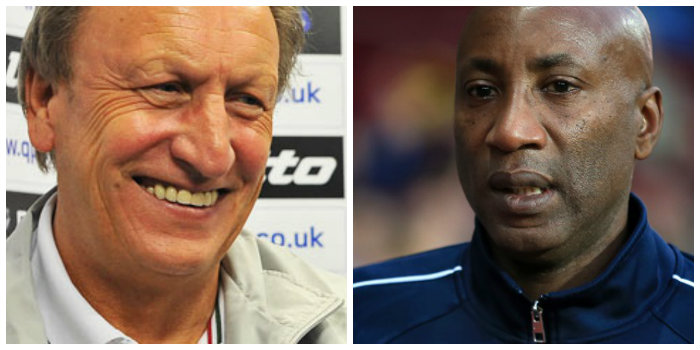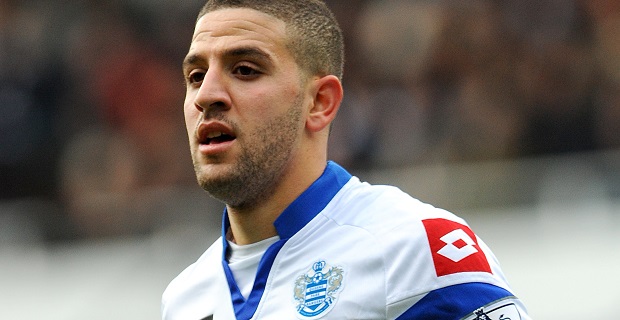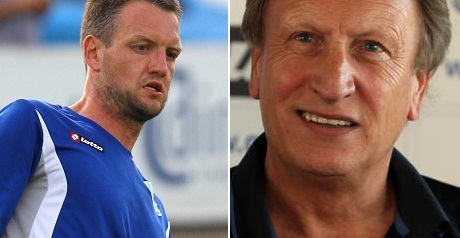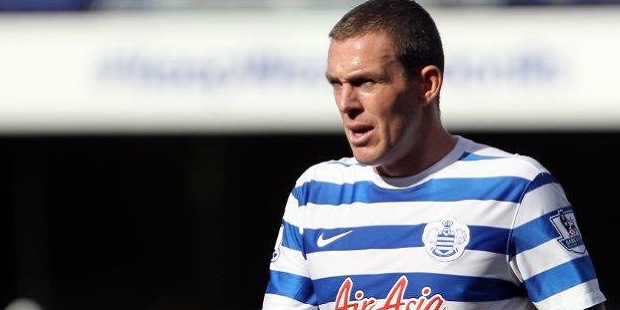What Ramsey could learn from Warnock

Neil Warnock has had almost as many ‘last jobs’ as there are reasons why his return in an advisory role is likely to weaken rather than strengthen Chris Ramsey’s position at QPR.
But suspend reality for a while. Because, in theory at least, there are certainly ways Warnock could help the under-fire head coach if he is serious about doing so. He’s strong in some of the areas Ramsey has much to prove.
Man-management
In the computer-game era in which we’re all besotted with tactics, Warnock is living proof that personality, leadership and an ability to handle players remain the keys to successful management.
Part of this is down to his sheer experience and longevity. He’s remained passionate and forthright, but over the years Warnock has mellowed around players as he has honed his man-management skills.
Much has been made – including by Warnock himself – of his handling of Adel Taarabt, for example. His success in that sense was massively overstated. His real skill was not so much in managing Taarabt, but managing his other players and keeping them on board in the face of Taarabt’s antics. That was a triumph.

Ramsey’s in-game tactics have been criticised but the biggest challenge for him has always been man-management during what he and his staff knew would be a very difficult season.
That’s even more the case now the goalposts have been moved and his brief has changed, with promotion rather than a rebuilding job now his task.
He is in a similar, very difficult, situation to that of Gary Waddock at QPR exactly a decade ago, having acted on the belief that certain players were not part of the club’s plans only to be left needing to mend bridges.
Warnock knows a thing or two about backtracking and compromising without looking weak. Some might call it simple pragmatism. Think Jason Puncheon at Crystal Palace and El Hadji Diouf at Leeds.
Self PR
Ramsey very rarely speaks about his past coaching achievements, which are significant, the improvement in some players during his time at Rangers, or the difficulties he has faced since taking over. History shows that QPR managers who hide their light under a bushel are not judged favourably by fans.
Part of Warnock’s vast experience is that he knows how to portray himself in the best possible light.
Many will tell you he got QPR promoted on a shoestring, or at least without a significant amount of money. This simply isn’t the case. By Championship standards a fair amount was spent on Taarabt, Paddy Kenny and two back-up players in Tommy Smith and Rob Hulse, who joined a squad which had already been heavily invested in.
Wages were also generous, helping him make some important free-transfer and loan signings. And he was fortunate enough to avoid the kind of cutbacks often inherited by managers when they take over at a club that has spent big without achieving success. QPR’s owners were simply willing to keep spending.

Many are also convinced Warnock steered the ship in particularly challenging circumstances. Again this is not the case, at least when compared to his predecessors.
Warnock came in when the club was heading for League One and possible financial problems. The owners by that stage were willing to accept they had no choice but to change their ways, appoint a heavyweight manager and leave him to it.
Flavio Briatore therefore stepped away for several months, Gianni Paladini relinquished the role of sporting director, and the circumstances Warnock managed in under Amit Bhatia and the then-chairman Ishan Saksena were much, much more favourable than those endured by previous Rangers managers.
Warnock, however, very cleverly managed to paint a very different picture – one which flattered him enormously.
He then successfully avoided blame for the disastrous signings of the summer of 2011, which he explained away as being because of a protracted takeover. As if those signings can be excused even as last-minute buys, and as if QPR making a glut of ill-advised last-minute buys in the final stages of a transfer window is unique to that summer.
It’s happened under other Rangers managers too and they, like Warnock, have neither been solely to blame nor completely innocent.
And those managers, incidentally, could also provide a very impressive-sounding list of players they wanted before eventually ending up with the ones they’ve been judged according to.
Matches: 84
Won: 33
Drawn: 27
Lost: 24
Warnock’s significant part in QPR’s problems in recent years has been largely overlooked. Unlike his better work. It can’t be disputed that his key signings: Kenny, Clint Hill, Shaun Derry, Jamie Mackie and Smith were excellent acquisitions and provided the spine of a Championship-winning side. And his team were not in the bottom three when he was sacked halfway through the following season.
It’s also the case that away from QPR, Warnock has a proven track record of getting teams promoted on a limited budget.
Creating diversions
The wily Warnock is a master of creating diversions. Top managers have tended to be good at this and the likes of Gerry Francis have very successfully done it at Rangers, be it about referees, boardroom issues, injuries or whatever else they can seize upon.
Some of those close to Ramsey in recent weeks have been willing to pick a fight with a linesman, have a rant about something – anything to change the somewhat unfair perception of a man who lacks spark and doesn’t know what he’s doing.
Ramsey’s muted criticism of the referee’s decision to award Saturday’s all-important penalty at Birmingham was a world away from the almighty fuss Warnock or Francis would have created. And there have been several such examples this season.
Many in football regard the behaviour of some managers as uncouth, even dishonest. The thing is, it works. It can help deflect blame, buy a manager time and unite players and fans behind a cause – which in its own way is good management.
Getting real
Talking of things that aren’t pretty or pleasant but get results. Managers can be idealistic about how they want the game to be played and that’s no bad thing, but certain realities need to be accepted and Warnock knows all about the realities of League football.
One of them, as Ramsey is discovering to his cost, is that however good you are as a coach, and however much you want to create a slick, footballing side, in the Championship you’re doomed without a centre-back who gets his damn head to the ball in his own box.
Harry Redknapp had Richard Dunne. Warnock had Kaspars Gorkss and, when he needed cover, Rangers brought back another man who had performed that role for them, Danny Shittu.

Ramsey has been keen to pair Nedum Onuoha with a ball-playing centre-back, with Gabriele Angella having been brought in after Tim Ream chose to go to Fulham. This was seen as crucial to the passing, entertaining style Ramsey wants.
But it’s not working out that way. Goals are being conceded from simple balls into the box not being dealt with. As a result the team are shaky at the back and lack the cohesion and courage to pass the ball the way Ramsey wants, leaving him with the worst of both worlds – a team conceding goals and the perception that they’re not encouraged to pass the ball.
Ramsey has been criticised for many things and his selection of Karl Henry in particular seems to be viewed by many as the root cause of many problems. But it’s routine balls into the box that are undoing Rangers again and again.
QPR history shows that regardless of a manager’s overall ability, as sure as eggs are eggs a lack of a commanding centre-back will get him sacked.
Ray Harford was regarded as one of the very best coaches of his generation, arguably second only to Terry Venables.
To keep the club up he signed Neil Ruddock on loan, giving Rangers exactly what they had lacked at the back.
After trying in vain to keep Ruddock, he was on the verge of signing a very similar player in Gerry Taggart, who at the last minute decided to join Leicester. A risk was then taken on the crocked Richard Ord, in whose absence QPR were diabolical and Harford lost his job.
Francis, who replaced him, then needed Andy Linighan on loan to keep QPR up.
Waddock wanted Danny Cullip and Dean Leacock, among others, but ended up with Damion Stewart and Zesh Rehman after Shittu left. He was axed in favour of John Gregory, who was able to steady things partly because he was able to sign Cullip.
Mark Hughes is a more recent example. For Karl Ready, read Anton Ferdinand – a key Warnock signing. Hughes was absolutely desperate to replace his liability of a centre-back but attempts to sign various players, including Michael Dawson, were unsuccessful.
The eventual arrival was Stephane Mbia, who did little to improve things.
It shows how crucial that area of the pitch is and that Ramsey cannot afford to let his idealism get in the way of the fact that he needs a stopper. One that can organise, and hopefully one that can play, but a stopper nonetheless. Otherwise his other ideas simply can’t get off the ground.
Warnock knows about putting pragmatism before principles. Taarabt wasn’t his kind of player, neither was Alejandro Faurlin. But he embraced them both because they were of use to him.
Ramsey perhaps needs to start thinking along similar lines.

21/10/2015 @ 7:08 am
Vs Yeovil, Vs Huddersfield, Vs SWFC – QPR did not concede a goal
In all games, Henry did not play
Statistically — Henry does not play=Cleansheet
20/10/2015 @ 6:01 pm
This write up talks complete sense & many true & exact statements.
Ramsey a coach not a manager. He cannot see how bad Onuah & Henry are.
Warnock in the managers seat before long please!